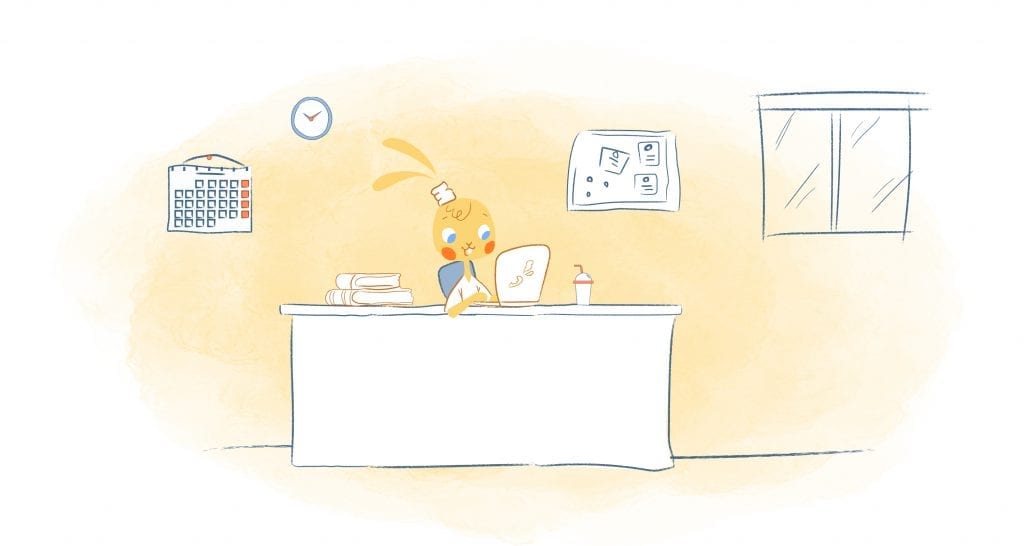

When I first became self-employed, I was excited about the idea of being able to work from home. I’m sure the thought of being able to avoid a hectic daily commute, work in your pajamas, and perhaps even catch a daytime talk show sounds pretty appealing to most people.
A few weeks ago, I stopped working from home and I couldn’t be more pleased with the results. I’m still running my online business but mainly from outside my home and I’ve been able to focus better and get a lot more done.
I realize that some entrepreneurs can be quite productive when working from home so I don’t want to generalize my results and assume they will be the same for everyone. However, my intent is to share just one point of view backed by some research and personal experience on my end, so you can make the best decision for you when it comes to self-employment and making the decision to work from home.
According to Gallup, 43% of US employees work remotely part or full time.
If you’re anything like me and you’re easily distracted throughout the day or feel like you’re not being your most productive self, here are a few reasons why you might not want to work from home when you’re self-employed.
Easier to Lose Momentum on Low Motivation Days
When you work from home, it’s much easier to lose momentum and slack off when you don’t feel motivated to work in the first place. I can’t even count how many times I’ve fallen down a YouTube rabbit hole or purposely dragged my feet on getting set up to work for the day.
Losing that precious time always came back to bite me later in the day.
Being self-motivated is key. But even then when you’re home alone, you’ll feel less accountable which makes it easy to lose your productive streak.
When I work outside of my home at places like a library or coffee shop, there’s still room to get distracted or slack off, but I’m not in the comfort of my own home so I can’t start watching T.V. or take a random nap.
It Can Get Boring
Working from home all by yourself can be quite boring and even have a negative effect on your social and communication skills. Believe it or not, it helps to interact with other people throughout the work day whether it’s colleagues, business owners, or the barista at Starbucks.
Having no one around to interact with aside from my cat most days left me feeling pretty bored and uninspired during the workday. As a result, I became easily distracted by even the smallest things and would take frequent breaks in an attempt to boost my energy.
Friends and Family May Not Understand
Ever since I became self-employed, I’ve found myself heavily defending my time against requests from family and friends. When you tell people that you work from home, they may automatically assume that it means you can sleep in, run errands, talk on the phone for hours, or do personal research for them.
In a way, it’s not fair because if your friend were at work from 9-5 and during those hours you can’t expect them to answer the phone or run errands.
I often find myself saying no to friends and family who ask or expect me to do other tasks during my normal working hours. I realize that they may mean well and probably don’t understand, but it’s so important to defend my time so I can make a living.
Working outside of the home can often ease tension in this area. It’s so much easier to tell people “No, I’m working at my office/coworking space today” and just shut yourself off from the world while you get important things done.
More Stress?
I can’t speak for everyone on this, but working from home full time can surprisingly result in more stress. An Inc.com recently referenced a Medical Press study that indicated working remotely can link to more stress and insomnia.
When collecting data, it was revealed that 41 percent of highly mobile employees said they felt some degree of stress, compared to 25 percent for office workers.
When you work from home, you are often subject to more stress because you’re creating your own hours and schedule. As a business owner working remotely, you can easily double a typical 8 hour work day and limit your sleep.
Not to mention, general home interferences can also create stress and distractions. I tend to eat more when I’m stressed out and being able to just walk into the kitchen whenever I please and snack all day wasn’t good for me.
Now, when I’m working at the library for example and I’m hungry, I tell myself that I have to complete what I’m working on before I head home for lunch. This creates urgency and efficiency as I work and anticipate a ‘reward’ which is getting to go home for a lunch break. When I’m already at home the entire day, there’s not much to work for or look forward to in a sense.
If you want to be able to leave work at work, for the most part, you may want to consider getting a private office or coworking space to be the home base for your business.
Coworking Spaces Offer Great Perks
If you’re considering going to a working space instead of working from home, there are quite a few perks entrepreneurs can take advantage of. Aside from having your own personal workspace, you can often take advantage of the meeting and conference rooms in the building if you ever have to meet with clients or business partners.
In addition to the free coffee, some offices also allow members to attend networking and social events for free. Perhaps you could meet your next assistant, client, or headshot photographer at your coworking space of event. You won’t have those opportunities when you work at home by yourself all the time.
Another perk is the professional office equipment you can use on site along with the opportunity to start a mailbox at the space. If you need to accept mail and packages for your business, your coworking space may allow you to use their address or set up a P.O. box.
While working from home can sound like a perfect solution, it may actually hinder your progress and productivity if you’re not careful. Don’t just take our word for it. You can test it out yourself by working outside of your home at a coffee shop, your local library, or even at a coworking space for 1 or 2 days of the week and see if you’re able to get more done and lower your stress levels.
Still think you might want to work from home anyway, next week I’ll cover some key components you’ll need to make it work.










Choncé Maddox
Choncé Maddox is a professional writer who recently left her job in the web design industry to produce killer content and manage her own writing business full time. She is passionate about helping entrepreneurs be more productive and create a life they love by doing fulfilling work. On the side, she runs a podcast and blogs about getting out of debt at MyDebtEpiphany.com.